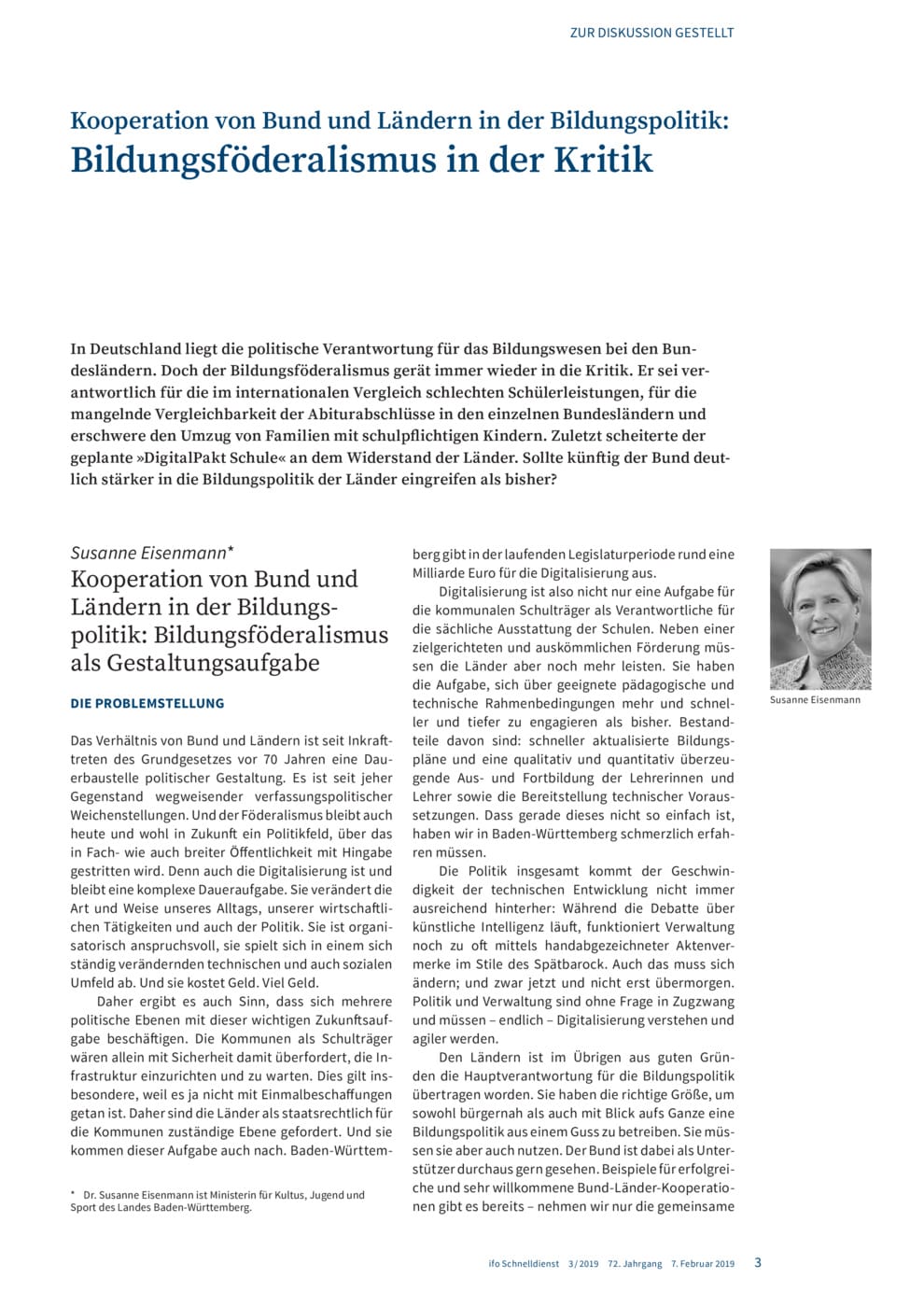Cooperation between the Federal Government and the Länder on Education Policy: Criticism of Education Federalism
ifo Institut, München, 2019
ifo Schnelldienst, 2019, 72, Nr. 03, 03-17

Education federalism is the subject of repeated criticism. Critics claim that it produces poor student performance by international comparison. Furthermore, the school-leaving qualifications in the individual federal states are not comparable, which makes the mobility of families with school-age children more difficult. It also hampers innovation: The planned "Digital Pact for Schools" ultimately failed due to opposition from the federal states. Should the federal government intervene much more strongly in the education policy of the federal states in the future? Susanne Eisenmann, Minister for Culture, Youth and Sport of the Land Baden-Württemberg, regards education federalism as a creative task. For good reasons, she says, the federal states have been given primary responsibility for education policy, as they "have the right scale to pursue an education policy that is both close to the citizens and, looking at the bigger picture, a unified whole". The federal government is very welcome as a supporter. The Länder should reliably insist on adequate funding and negotiate with the federal government on how new tasks can best be shared. For Kerstin Schneider, University of Wuppertal, the Digital Pact for Schools is "a prime example of how investments in future technologies are not implemented in schools because there is a wrangling over political responsibilities". In addition, she says, the federal states do not have to bear the consequences of bad or wrong decisions in their education policies. Greater transparency is needed to assess the quality of the various education policies. An important step in this direction would be, for example, pupil register data through which people's employment history could be linked with their educational history. According to Susanne Lin-Klitzing, University of Marburg and Deutscher Philologenverband, it is obvious that education federalism has led to great disparities in the quality of education in Germany. Nevertheless, she believes there is no alternative to education federalism for Germany. Educational structures and questions of content are better dealt with at state level than in Berlin. However, this does not mean that there is no need for improvement in education federalism, as the political debate on the Digital Pact has shown. Karin Prien, Minister of Education, Science and Cultural Affairs of the Land Schleswig-Holstein, sees education federalism in Germany as an achievement. As she points out, with the founding of the Conference of Ministers of Education and Cultural Affairs a body was also created with the aim of enabling common opinion-forming and decision-making with a view to both preserving the cultural sovereignty of the states and establishing nationwide standards. Robert Schwager, University of Göttingen, advocates "education federalism for responsible citizens". Those who believe in responsible citizens should not approach major challenges centrally, he says, because it can be assumed that citizens will take the trouble to make well-considered decisions on important issues and to inform themselves well as voters. Trusting in the responsible self-interest of those directly affected, the liberal legal system therefore relied fundamentally on the principles of proximity to the citizens and subsidiarity instead of assigning all public decisions to the highest level from the outset.